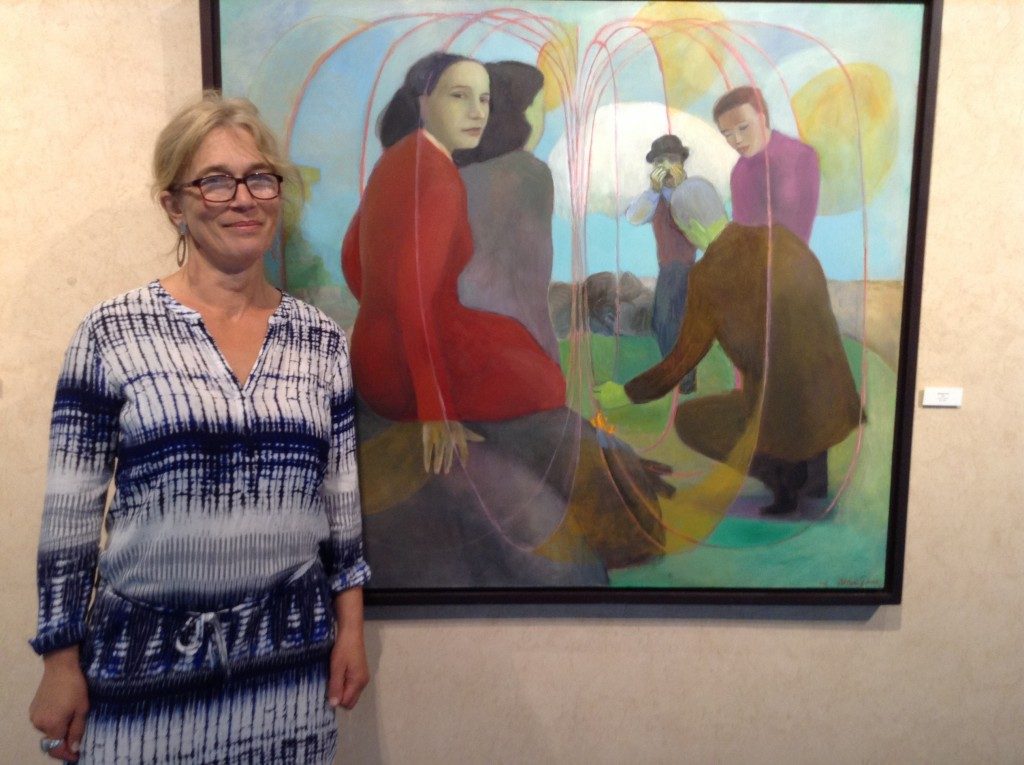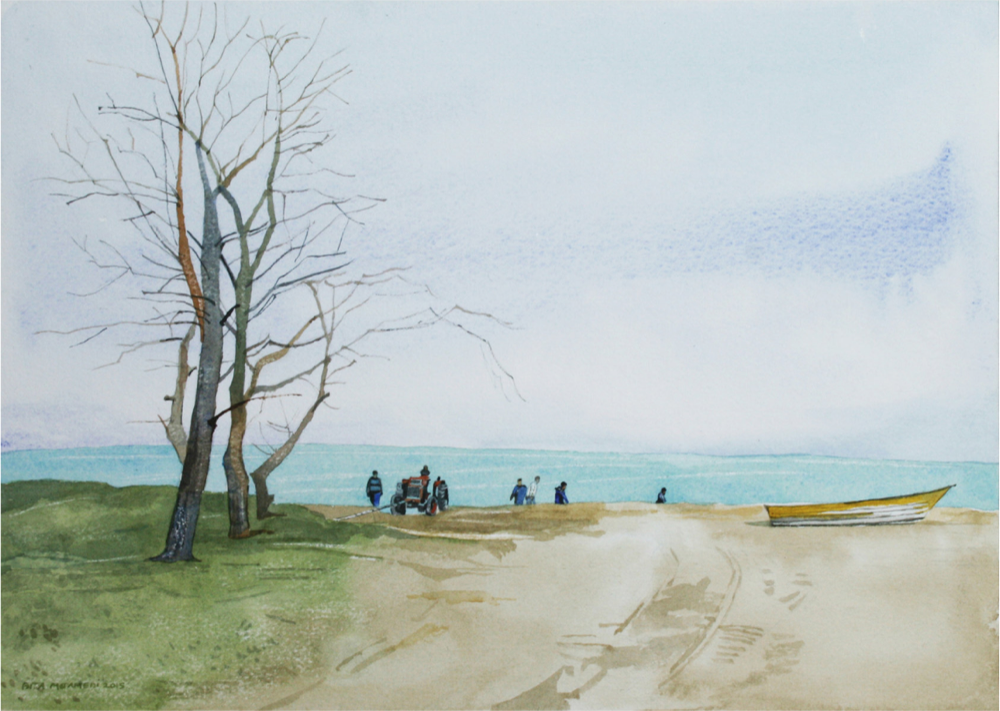
Artist explores relationships in film and personal life
By Cheryl Minns, Columnist
Stefanie Denz’s The End of the Affair: Re-Imagined Roles and 20th-Century Cinema explores how the male/female relationship changed from 1960–1984 and how Denz reacts to that constantly evolving relationship in her own life. On display in the Amelia Douglas Gallery, the exhibit features oil paintings of movie stills and personal images from Denz’s life on a variety of surfaces, such as wood, plastic, and Mylar.
“I paint because I have a need to express myself,” Denz said during her artist talk in the gallery on September 16. “There are certain feelings that I want to convey.”
Denz’s earliest artwork in the exhibit was inspired by movie stills from Michael Cacoyannis’s Zorba the Greek. After she watched the film in 2004, she started noticing certain images in the movie that caught her attention, so she decided to sketch them. These sketches led to the Zorba the Greek wood panel paintings featured in the exhibit, “Desire” (2005) and “Our Hero Leaves Unredeemed” (2007).
The next film series she began watching was Federico Fellini’s movies, including 8 ½ and La Dolce Vita. Her 8 ½ paintings capture scenes from the film on wood panels with uniquely cut wooden shapes affixed in certain positions to emphasize the composition of different shots. “La Dolce Vita and Ferry Stairs” (2009) blends film with Denz’s real life, featuring scenes from the movie painted on a wood panel, like a wallpaper print beside a large image of a stairwell in a Salt Spring Island ferry.
“I don’t think you need to watch the movies to appreciate the art,” Denz said. “I’m hoping I caught whatever the interaction is between the people because there is so much story in body language.”
The End of the Affair exhibit is named after one of Denz’s personal wood panel paintings, “Tennis (The End of the Affair)” (2014), which features a female friend of hers, a former flame, and her daughter.
Denz’s daughters, Ella and Frieda, also appear in other paintings in the exhibit, including the Mylar painting “Rainer, Hannah, and Frieda” (2014) and plastic painting “Hannah and Ella” (2014). Both paintings are inspired by filmmaker Rainer Werner Fassbinder’s movies and feature Hanna Schygulla, a well-known German actress who worked with Fassbinder on several projects.
Denz’s son also appears in paintings in the exhibit. He is part of the Mylar painting, “Aulden with all the Men and Women I have Known” (2013), which features the house that she grew up in and scenes from Fellini’s 8 ½. Her son also appears in the plastic painting, “Veronica Voss in a Victoria Suburb” (2014), which features his suburban neighbourhood and scenes from Fassbinder’s Veronica Voss.
The End of the Affair: Re-Imagined Roles and 20th-Century Cinema will be on display until October 22, in the Amelia Douglas Gallery on the fourth floor of the Douglas College New Westminster campus.
